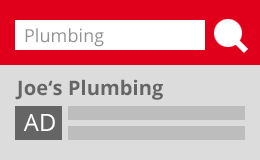How to set up your first PPC campaign

Marketers favour PPC (pay-per-click) as a form of advertising because of its ability to generate a visible return on investment. If you spend $100 on an ad campaign, you’ll quickly be able to measure the exact amount of return from the budget spent. If your business can benefit from more leads and sales, this article covers everything you need to know to get started with PPC.
What is PPC?
Pay Per Click (PPC) is a form of advertising managed through the Google AdWords platform. Relevant ads are shown based on keywords people use in their search query. For example, type in ‘Sydney accountants’ and you’ll see that the first few results are ads served through PPC.

Who is PPC suited for?
PPC is best suited for businesses with a website that has a product/service offering, one that people are actively searching for. It’s suited for businesses of all sizes but particularly great for small businesses as you can run ad campaigns for a little as $100.
How does it work?

Pay-per-click is a marketing channel driven by demand. Here’s an example of how it works:
1. A Sydney accounting firm i.e. XYZ Accounting selects keywords to bid for i.e. Sydney accountants
2. A potential customer searches for accountants using ‘Sydney accountants’ in their search
3. XYZ Accounting shows up in the search results
4. XYZ Accounting is only charged if someone clicks on the ad
Why should you use PPC over social media advertising?
Social advertising i.e. Facebook ads should work cohesively with PPC. Where Facebook is great for generating brand awareness and building email lists, PPC is great for targeting people who are actively looking for your product/service and are ready to buy. The platform is a direct point of conversion.
This infographic highlights the difference between PPC and Facebook ads.
What results can you expect?
Your PPC campaign results are dependent on the industry, the campaign budget and landing page conversion rate (i.e. how many people visit your page and take action on your website). On average, PPC advertisers are seeing a conversion rate of 2.70%.
According to Search Engine Watch, the following industries generate the highest conversion rates through PPC:
• Insurance & Finance: 7.19% avg.
• Consumer Services: 5.00% avg.
• Advocacy: 4.61% avg.
• Real Estate: 4.40% avg.
• Legal: 4.35% avg.
Ready to set up your first campaign?
5 steps to setting up your PPC campaign
There are many strategies you can implement to maximise ROI for your ad budget. Whether you decide to manage your own campaigns or leave them in the hands of experts, it’s important to understand the basics.
Step 1: Define your objectives
Prior to setting up your PPC campaign, you’ll want to define your objectives.
Examples of objectives:
• Increase in website traffic
• Increase in enquiries i.e. form fills and phone calls
• Email sign ups/subscriptions
• E-commerce sales
Setting a goal will help you measure the success of your campaigns. It can also help you segment your PPC campaigns by objective.
Step 2: Set up your AdWords account for success
• Sign up for your AdWords account. If you have an existing Google account you can use the same email address.
• Select your keywords using the Google keyword planner tool. The Google Keyword Planner tool helps you identify keywords that people are using in their search.
The right keywords can influence the success of your PPC campaign. Take time to do your keyword research to ensure you are selecting keywords your ideal customers are searching for.
Google’s Keyword Planner can show you search volume data and trends per keyword.

Tip: When selecting keywords for your campaign, think like your customers. ‘Professional accountant in Sydney’ may be great keywords for your brand but your customers may be using general keywords like ‘best accountant in Sydney’, ‘cheap accounting services in Sydney’…etc.
Step 3: Write copy your ads
When writing copy for your ads, it is best practice to follow the Google AdWords text ad guidelines and have several copy variations to test.
Here are the character limits you’ll want to keep in mind when building out your text ads:
Headline 1 (30 characters max): i.e. Sydney’s Trusted Accountants
Headline 2 (30 characters max): i.e. Small businesses and startups
Description (80 characters max): i.e. Sydney and Melbourne based. Get a quote online now.
URL: www.xyzaccountants.com
The best way to create effective ads is to test and learn. Have several versions of your ads and observe which one performs the best. Once you have identified a winner, you can increase spend on your top performing ad.
Tip: Ensure that your ads match the landing page you’re sending traffic to. For example, if you have ads about your accounting services, your landing page should talk to your services, prices…etc. The messaging in your ads should match the messaging on your landing page.
Step 4: Observe and optimise
If you want to maximise ROI on your ad spend, ‘set and forget’ is not an approach you will want to adopt. You’ll need to monitor your campaign performance on a weekly basis and optimise your ads where necessary. In doing so, you’ll be able to dial up the budget for top performing keywords and reduce spend on ones that are generating the least return.
Step 5: Rinse and repeat
Setting up a PPC campaign isn’t difficult to do but where most business owners get stuck is the strategy needed generate high ROI. A successful campaign is made of many variables i.e. keyword selection, audience targeting, ad copy, bidding strategy…etc. Just getting one of them wrong can see your campaign perform poorly and leave you with a hole in your pocket.
To learn how we have helped our clients maximise return on their investment, contact our online solutions advisors or call us at 1300 793 248.